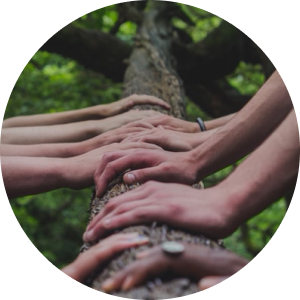Dental Safety
Going to the dentist is one of the high risk things to do during a pandemic unless adequate precautions are being taken. While dentists engage in high risk activities for their patients and staff, and while we know that airborne transmission is prevalent during this pandemic, many dentists are still using droplet precautions—with a focus on deep cleaning, 6 ft distance, and surgical masks—instead of implementing airborne transmission precautions—with focus on cleaning air by HEPA filters and using high quality masks.
What can you look out for in a dentist
What can we do? First check what your dentist is doing, and compare with others. If they are pretending it doesn’t exist, if they are using the wrong type of protocols, if you don’t feel comfortable with the precautions that are in place, then don’t hesitate to choose another dentist to be safer. They should:
- Perform a temperature and other symptom check to see if patients are sick before coming into the office and rescheduling if they are sick. (This reduces the risk other patients are in the office that are sick, and risk that the dentists and assistants are infected).
- Use a virtual waiting room so you wait outside and don’t go into the office until they are ready for you to be seen.
- Ask you to limit the number of people you bring with you, such as children.
- Ask whether you’ve been around people who have COVID-19
- Mandate high-quality mask wearing for staff, and masks for patients. Some are still using surgical masks and shields and should be using N95 masks or better (elastomeric masks or PAPRs without exhalation valves, i.e. with source control). Shields are also important for dentists at these close distances.
- HEPA purifiers in every room.
- Since dentists are really close to the patient, it is important for dentists to protect themselves by preventing the air a patient is breathing out from getting to them. Better dentists will use strong air suction into a HEPA (or even ULPA) filter equipment (Extraoral Suction System) that reduces their risk of infection.[1][2] This equipment also protects patients if the suction intake is placed so that air from the dentist, and from any assistant, as well as from the patient, is pulled to the intake.
- Disinfection is good to do, but avoid dentists that emphasize surface disinfection and don’t do air filtering.
They may also:
- Space out appointments
- Ask about your recent travel
- Tell you not to arrive early
- Call you before your appointment to ask about your health
- Require patients to wear a high-quality face mask
Other features:
- Small offices only have one patient at a time, this is better for COVID safety, if possible.
- Some offices have separate rooms for each patient, others have an open floor plan, look for one that has separate rooms, if possible.
- Ask about ventilation, and if you can open the windows in the treatment/exam room


What can you do?
Things you can do when you are going to the dentist (Note: WHN has no relationship with the companies or products listed and is not endorsing any companies or products. They are mentioned to illustrate possible examples of the corresponding measures or solutions):
- Hold one or two battery powered HEPA air purifiers (remove the handle it is not helpful for this purpose) near your chin and point them at your face while sitting in the dentist chair. (It would make sense for dentists to provide them to their patients but we nave not found this is done anywhere.)
- US (1) Tested: PureZone Mini Portable Air Purifier, (2) Other: Munchkin Portable Air Purifier 4
- Europe: (1) Munchkin Portable Air Purifier 4, (2) toGo filter air purifer
- Here is an idea about ReadiMask as a nose mask to improve safety going to a dentist:
- Lisa Foreman APRN-C on Twitter: “My Readimask N95 hack for dental work!
- Gerard Hughes on Twitter: “Just fit tested @findmeabluebird’s nose-only Readimask hack with an old Portacount – it really works.”.
- Shipping of Readimask to many countries is possible. Call: +1-610-240-0900 x2, Email: support@readimask.com
- If you have an CO2 monitor (Aranet) take it with you and monitor the air quality. There is increasing risk with increasing CO2 levels—if there aren’t air purifiers.
- While airborne transmission is the most important, it is still a good idea to avoid touching surfaces or use gloves. Consider bringing an alcohol wipe to wipe down the patient chair.
What can you ask of your dentist and other special arrangements
Some dentists don’t want to adjust the way they do things to accommodate better protections. Many dental offices aren’t designed for high levels of protection. That’s because many don’t have:
- Airborne infection isolation rooms for each patient
- Requirement of high quality N95 masks
Some dentists will not want to see you if you ask for special conditions, others will just not be willing to change. On the other hand, some will be receptive and may adapt their practice to some of the things you ask for. If you already have a receptive dentist or if you find one, please encourage them with positive feedback and consider passing the message of their proactiveness to your friends and community. But also, consider asking for the following (some of these repeat the “What can you look out for in a dentist” section):
- Ask for the first appointment during the day.
- Some dentists schedule emergency appointments at times when the office is not otherwise open, they may be willing to do this for you without an emergency, e.g. on a weekend or after usual hours. An extra fee is likely needed.
- If they are not doing so regularly, ask for the dentist and assistant to use N95 masks (Note: elastomeric or PAPRs without exhalation valves / with source control or two way PAPRs such as the MicroClimate II are better if they are willing to try them)
- Ask to use an extra air purifier in the room, you may have to provide or donate it.
- Ask them if they have windows in the room to open them if weather permits
- Ask dentist and assistant to take a test just before the appointment starts (long enough ahead of time so you won’t go in until you know it is negative). You will probably have to pay for the test. A home PCR test, e.g. from cuehealth.com or lucirahealth.com, is much better than an antigen test.
- Ask what is their return to work policy for those who are sick, and note how long they require and whether they require a negative test before return. Our guidelines are at least 10 days (better 14) and two negative (better PCR) tests.
- Some locations have mobile dentists that can come to your home and do the dentistry outdoors. Check for these opportunities.

